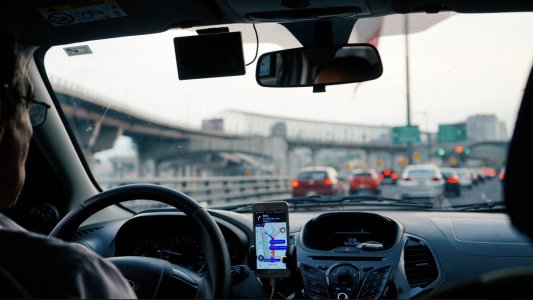Are you one of the 4 million Americans affected by this new driving law? Find out now!
- Replies 1
If you’re among the 4 million licensed drivers in South Carolina or just someone who finds themselves on a road trip, there’s a big rule change headed your way.
Starting this fall, how you handle your phone in the car could determine whether you’re driving legally—or racking up fines.
And even if you live outside the state, this is a growing trend across the country.
What starts here often spreads, meaning this could be a glimpse into the future of driving laws nationwide.
Beginning September 1, South Carolina will officially enforce a hands-free driving law. That means:
Distracted driving isn’t just an annoyance—it’s deadly. State officials connect it to thousands of accidents every year, with South Carolina consistently ranking among the worst in the country for roadway fatalities per mile traveled.
Representative Bill Taylor, who’s fought for nearly a decade to pass this legislation, called it a milestone: “I have been an outspoken advocate for a strong hands‑free law for nearly eight years now. The issue of highway safety is near and dear to me, and I am thrilled to see all the progress that South Carolina is making to keep our citizens safe as they travel through our great state.”
Also read: Have you heard about this new law? You could be fined up to $250 if you break it!
Robert Woods, director of the Department of Public Safety, signed the bill on July 31.
He acknowledged the measure would bring “a very significant change in driving habits for many drivers,” adding, “we will educate first.”
Woods also said, “We are confident this law will prevent collisions and save lives,” and noted that state troopers and local officers “will strictly enforce this law.”
South Carolina had more than 3.9 million licensed drivers in 2021, a number that rose to 4,091,650 in 2022, according to GoodCar.com.
Plenty of South Carolinians—especially retirees—didn’t grow up with smartphones. The temptation to just check one thing can be strong. But this law is a reminder: safety comes before scrolling.
Also read: New driving law takes effect August 1—here’s what you need to know
If you’re in South Carolina, mark September 1 in your calendar. If you’re not, keep an eye on your state legislature.
More and more states are pushing through similar laws, and chances are your state is next.
Because at the end of the day, this isn’t just about avoiding a ticket—it’s about protecting your life, your passengers, and everyone else sharing the road.
Read next: What’s changing for cyclists in July? A new rule could mean fewer stops—and safer rides

Are you ready for South Carolina’s hands-free law? Have you ever had a close call due to distracted driving? What hands-free gadgets do you use in your car? Do you think every state should adopt this rule—or does it go too far? Drop your thoughts, stories, and advice in the comments below.
Starting this fall, how you handle your phone in the car could determine whether you’re driving legally—or racking up fines.
And even if you live outside the state, this is a growing trend across the country.
What starts here often spreads, meaning this could be a glimpse into the future of driving laws nationwide.
Beginning September 1, South Carolina will officially enforce a hands-free driving law. That means:
- No holding your phone in your hand
- No tucking it between your shoulder and ear
- No typing out texts, emails, or social media posts
- No watching or streaming shows, or even playing games while driving
Distracted driving isn’t just an annoyance—it’s deadly. State officials connect it to thousands of accidents every year, with South Carolina consistently ranking among the worst in the country for roadway fatalities per mile traveled.
Representative Bill Taylor, who’s fought for nearly a decade to pass this legislation, called it a milestone: “I have been an outspoken advocate for a strong hands‑free law for nearly eight years now. The issue of highway safety is near and dear to me, and I am thrilled to see all the progress that South Carolina is making to keep our citizens safe as they travel through our great state.”
Penalties: What happens if you break the law
The new rules aren’t toothless. Here’s how enforcement works:- First offense: $100 fine
- Second or later offenses: $200 fine + 2 points on your driver’s license
Also read: Have you heard about this new law? You could be fined up to $250 if you break it!
How will drivers learn about this change?
The Department of Public Safety plans a statewide education blitz. Drivers can expect:- Billboard reminders on highways
- Radio ads across South Carolina stations
- Social media posts and community outreach
Robert Woods, director of the Department of Public Safety, signed the bill on July 31.
He acknowledged the measure would bring “a very significant change in driving habits for many drivers,” adding, “we will educate first.”
Woods also said, “We are confident this law will prevent collisions and save lives,” and noted that state troopers and local officers “will strictly enforce this law.”
South Carolina had more than 3.9 million licensed drivers in 2021, a number that rose to 4,091,650 in 2022, according to GoodCar.com.
Plenty of South Carolinians—especially retirees—didn’t grow up with smartphones. The temptation to just check one thing can be strong. But this law is a reminder: safety comes before scrolling.
Also read: New driving law takes effect August 1—here’s what you need to know
If you’re in South Carolina, mark September 1 in your calendar. If you’re not, keep an eye on your state legislature.
More and more states are pushing through similar laws, and chances are your state is next.
Because at the end of the day, this isn’t just about avoiding a ticket—it’s about protecting your life, your passengers, and everyone else sharing the road.
Read next: What’s changing for cyclists in July? A new rule could mean fewer stops—and safer rides
Key Takeaways
- South Carolina’s hands-free driving law begins September 1, banning handheld device use behind the wheel.
- Penalties: $100 first offense, $200 + 2 points for later offenses (after Feb 28, 2026).
- Public awareness campaign will run across billboards, radio, and social media.
- The law aligns South Carolina with the majority of states that already have hands-free rules, aiming to reduce crashes and fatalities.







